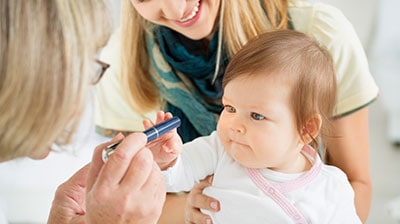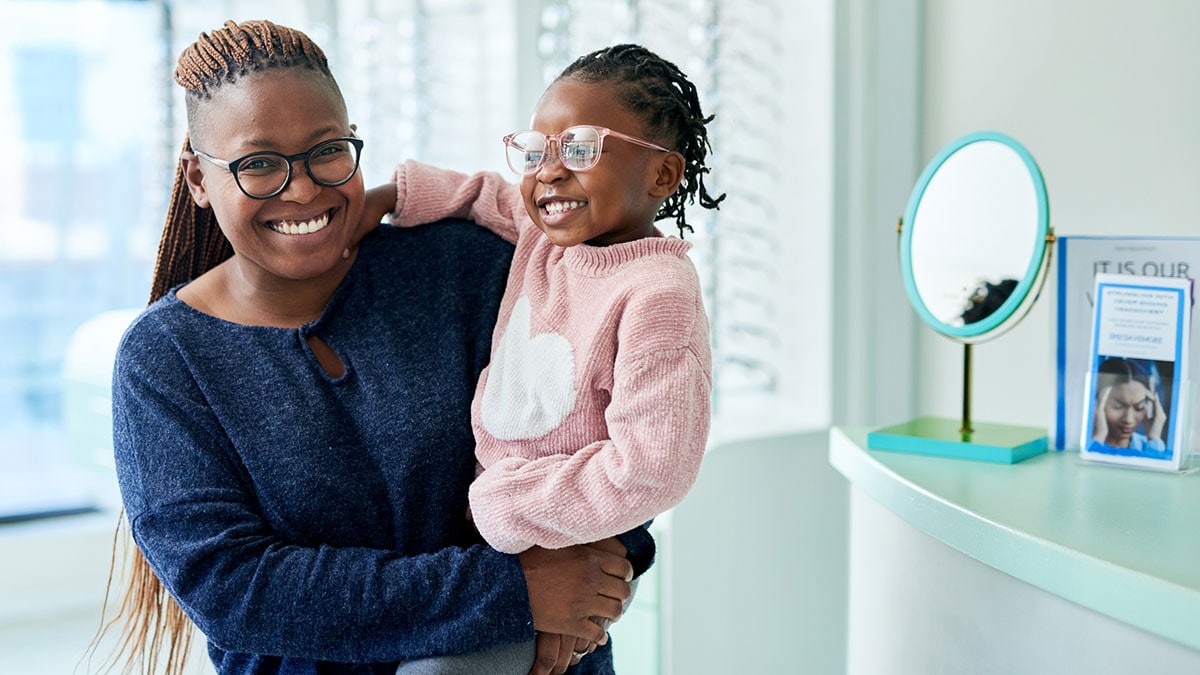Key points
- Vision is an important part of childhood development.
- If your child has an uncorrected vision problem, it may affect their ability to learn and reach their highest potential.
- Make sure your child has routine eye exams to keep their eyes healthy.

Vision screenings and eye exams
As your child grows, their eyes can change quickly. Your child's pediatrician will likely screen your child's vision as part of their regular checkups. If they find signs of a vision problem, they may recommend an eye doctor for a comprehensive eye exam.
A vision screening is an exam used to identify the children in need for additional eye care. It can be done by a family doctor, pediatrician, school nurse, or other health care professional.
A comprehensive eye exam is a thorough exam done by an eye doctor—a specialist called an ophthalmologist or optometrist. The eye doctor can diagnose your child's medical or vision problem and provide treatment.
If you have any concerns about your child's vision, ask their pediatrician to help you find an eye doctor. Early detection and treatment are key to protecting your child's vision.
Common vision problems in children
If your child has a vision problem, it could affect their school performance. Eye exams and treatment can improve:
- Learning.
- Testing.
- Class participation.
- Behavior.
- Self-confidence.
Parents and teachers can help children by being aware of common vision problems.
Refractive errors
Refractive errors occur when light doesn't correctly focus on the retina (the light-sensitive tissue at the back of the eye). This condition causes blurred vision. This eye condition includes:
- Myopia (nearsightedness)
- Hyperopia (farsightedness)
- Astigmatism (when the cornea or lens has a different shape than normal)

Amblyopia (lazy eye)
This condition occurs when vision in one eye is reduced because of a communication error in the brain. The brain will rely more and more on the stronger eye, while vision in the weaker eye gets worse.
Strabismus (crossed eyes)
This eye condition can affect one or both eyes. When a child has strabismus, their eyes do not focus on the same object at the same time. As a result, their eyes have trouble maintaining the correct position.
Convergence insufficiency
This eye condition affects how the eyes work together when looking at objects close up. Convergence insufficiency can cause blurry or double vision while looking at any object close up, like a book or digital device.
If you notice your child squinting, rubbing their eyes, or complaining of headaches after doing schoolwork, have their vision checked. An eye doctor can check for eye conditions and other vision problems and provide treatment if needed.
Tips to protect your child's vision
Eat well: Eating a healthy diet rich in fruits and vegetables, which contain necessary vitamins and minerals, can help protect your child's vision.
Limit screen time: Increased screen time can make uncorrected vision problems worse. Limit screen time each day and have your child take frequent breaks to protect their vision. Taking breaks also helps with other near-vision activities like reading, writing, or drawing.
Get enough sleep: Our bodies and eyes heal when we sleep. Without enough sleep, it could be harder for your child's eyes to recover from everyday use or irritants in the environment.
Spend time outdoors: Many children spend hours each day doing near-vision activities. Going outdoors allows them to look at distant objects. This lets their eyes recover from strain and fatigue. Playing outdoors also helps kids to be physically active and get essential vitamin D.
Use protective eyewear and sunglasses: About 90% of eye injuries can be prevented with protective eyewear. If your child is involved in sports or other activities, make sure they wear protective eyewear to avoid injuries. You can also protect your child's eyes from the sun with sunglasses that have 100% ultraviolet (UV) protection. Exposure to UV rays over time can be harmful to the eyes.
Get regular eye exams so an eye doctor can follow your child's vision through development. If anything changes, you can treat and manage your child's vision quickly.
